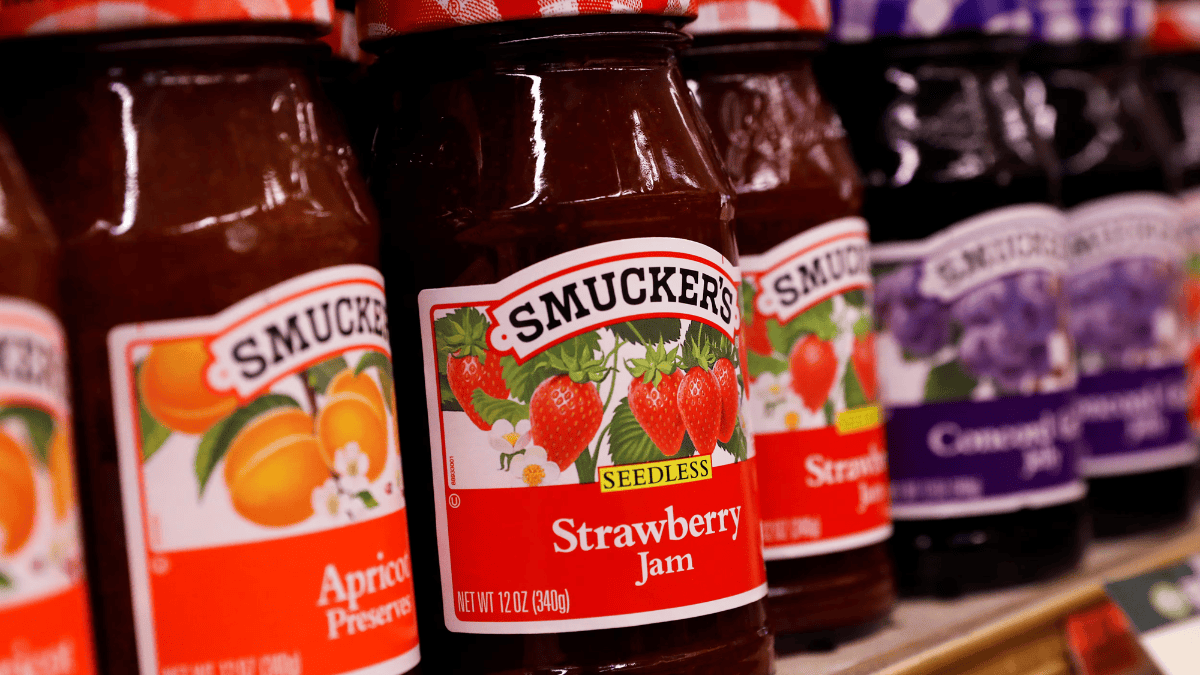This commitment positions Smucker alongside a growing wave of major food manufacturers responding to increased consumer demand for cleaner labels and heightened government scrutiny over synthetic dyes.
The decision, made public on Thursday, underscores a broader industry pivot towards more natural ingredients and healthier offerings. While a significant portion of Smucker’s portfolio, including its popular Uncrustables sandwiches, already boasts a synthetic dye-free status, the new initiative will specifically target products where artificial colors are still present. This includes various sugar-free fruit spreads, certain ice cream toppings, and notably, select products from its recently acquired Hostess brand. Fans of classics like Twinkies and Snoballs snack cakes, which currently utilize dyes such as Red 40, Yellow 5, and Red 40 Lake, can anticipate reformulated versions hitting shelves in the coming years.
A Sweeping Industry Shift
Smucker’s pledge is not an isolated incident but rather a testament to a rapidly accelerating trend within the food industry. In just the past week, major players like Nestlé, Conagra Brands (parent company of Duncan Hines), Kraft Heinz, and General Mills have all declared similar intentions to phase out synthetic dyes from their products. This collective movement signals a powerful response to evolving consumer preferences for ingredients perceived as more natural and wholesome.
Driven by Demand and Regulatory Momentum
The increased scrutiny on artificial colors comes amidst growing awareness of their potential health implications. In January, U.S. regulators banned the dye Red 3 from the nation’s food supply, nearly 35 years after it was linked to cancer risks and barred from cosmetics. Further amplifying this momentum, in April, Health and Human Services Secretary Robert F. Kennedy Jr. and FDA Commissioner Marty Makary publicly urged the food industry to voluntarily remove six synthetic dyes by the end of 2026. This federal push, combined with vocal consumer advocacy for healthier options, has evidently spurred companies to act decisively.
Mark Smucker, CEO and Board Chair of J.M. Smucker Co., emphasized the company’s responsiveness to consumer behavior. “Our commitment to remove FD&C colors from our sugar-free fruit spreads, ice cream toppings, and sweet baked goods products represents the latest example of our desire to evolve,” he stated. This evolution includes past reformulations such as the removal of high-fructose corn syrup from Uncrustables and the introduction of fruit spreads with all-natural ingredients.
What This Means for Consumers
For the average American shopper, this shift means more choices for products free from synthetic dyes, potentially simplifying grocery decisions for health-conscious families. Smucker is also extending this commitment to the educational sector, aiming to cease selling products containing FD&C colors to K-12 schools by the 2026-2027 school year, further promoting healthier options for younger generations.
The coming years will witness a significant transformation in the ingredient lists of many beloved American food products. Smucker’s proactive steps are a clear indicator that the future of food is moving towards greater transparency and a renewed focus on natural, wholesome ingredients. This promises a healthier outlook for consumers and a more competitive landscape for food manufacturers.







